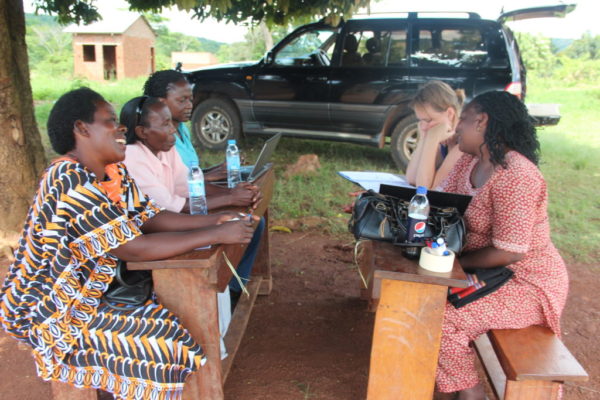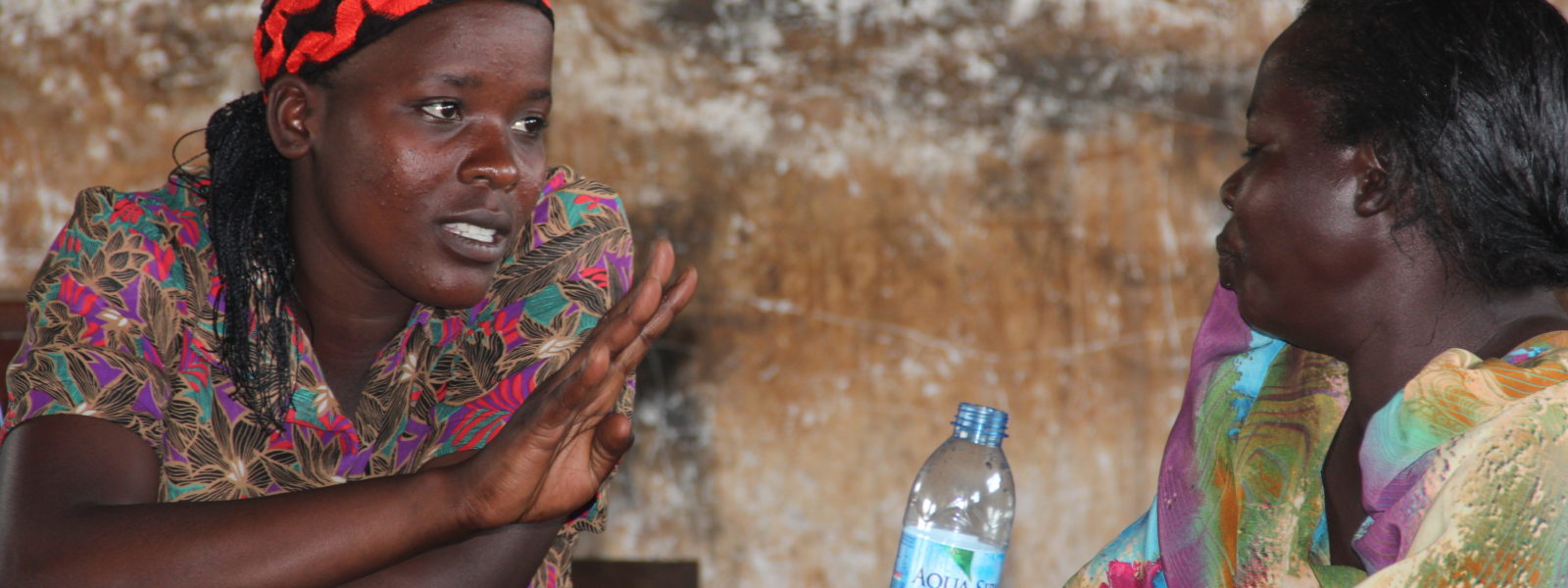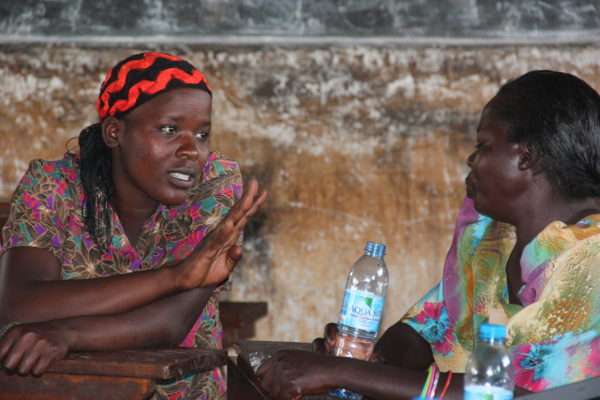By Anne Rietveld, Bioversity International scientist and RTB gender focal point
It was April 2014, and we’d reserved two vans to take RTB researchers to Mukono village, in Central Uganda, to test the methodology for GENNOVATE: which addresses how gender norms and agency influence men, women and youth to adopt agricultural innovations. However, due a mix up, the two vans delivered by the rental agency were too small to hold the entire group, so I had to borrow our office’s enormous, black, four-wheel drive vehicle.
After dropping off the researchers, I drove to the town’s marketplace to buy some bananas for snack time. Although we were just a few hours away from Kampala, the capital, I attracted quite a lot of attention as I maneuvered the vehicle through the narrow streets around the market, as bystanders pointed at me and shouted. One man came up to my window and said, apologetically: “They’ve never seen a woman drive a car, and such a big car, they just cannot believe it”.
I often remembered this incident as I read through the GENNOVATE data. When women discussed changes in their perceptions of what women are capable of, for instance, some mentioned that just seeing other women in non-traditional roles was eye opening. Although that didn’t usually mean that gender norms would change overnight, it did strengthen my belief that our presence in rural areas can influence perceptions on many fronts beyond the technologies we test or promote. It’s an encouraging thought for those who, like me, are interested in designing pathways to contribute to ‘gender transformation’ for more equality.

RTB researchers learned to use the GENNOVATE methodology in Mukono, Uganda in April 2014. Photo A. Rietveld/Bioversity International
A CGIAR-wide gender research initiative
The RTB researchers who were trained that day went on to conduct GENNOVATE case studies in Uganda, Malawi and Burundi in the months that followed. Each GENNOVATE case study refers to a single community in which a set of standardized qualitative tools is used to collect data from men and women. Other RTB researchers later completed case studies in Colombia, Bangladesh and the Philippines.
GENNOVATE was conceived at a 2013 meeting of the CGIAR gender network, in Montpellier, France. One of the presenters, Patti Petesh, discussed her research for the 2012 World Bank report ‘On Norms and Agency’, which catalyzed a discussion on qualitative research as the key for understanding the role of gender norms – the social rules that prescribe men’s and women’s roles and behavior – and agency, which refers to one’s capacity to act, in agricultural innovation and technology adoption processes. Petesh was later hired to design the methodology guide for the seven qualitative research tools used for GENNOVATE.
Researchers from across the CGIAR have used that methodology to conduct a total of 137 case studies in 26 countries over the past few years. A series of different products has begun to emerge from that research, one of which is Gender in agricultural change: towards more inclusive innovation in farming communities. This report, which covers 24 GENNOVATE case studies conducted in ten countries, was written by researchers from the CGIAR Research Program on Roots, Tubers and Bananas (RTB) in collaboration with staff from the former CGIAR Research Program on Integrated Systems for the Humid Tropics (Humidtropics). The report was edited by Gordon Prain, the former head of the Social and Health Sciences Global Program at the International Potato Center (CIP).
According to Prain, RTB promoted both gender integration research and strategic gender research from the start, and has invested considerable resources in gender integration research, which focuses on interdisciplinary collaboration between gender scientists and biophysical scientists. But the GENNOVATE research, he says: “Delves into the underlying issues of normative constraints and power distribution between men and women.”
Prain explains that, while it may not have an immediate pay-off in terms of research outcomes, GENNOVATE is nonetheless important. “What is exciting about this research, and why it is important for RTB, is that it represents the ‘up-stream’ component of gender integration research, the understanding of social processes involving the relations between women and men, which will impact the uptake of research outputs. We need this understanding in order to more effectively integrate gender into technology innovation,” He says.
In addition to the new report and other products resulting from GENNOVATE, the initiative has provided very valuable experiences for the RTB social and gender scientists and other researchers who participated in it. GENNOVATE provided an opportunity to do in-depth social research across the CGIAR, with younger and more experienced researchers working together, and thereby created a platform for capacity building. For example, entire teams of field staff benefitted from training in qualitative data collection methods, whereas most of GENNOVATE’s principal investigators received training in the use of NVIVO, a software package for qualitative data-analysis. Thus GENNOVATE has not only marked the first CGIAR-wide, in-depth social study, it has equipped RTB researchers to produce better and more relevant research in the future.

